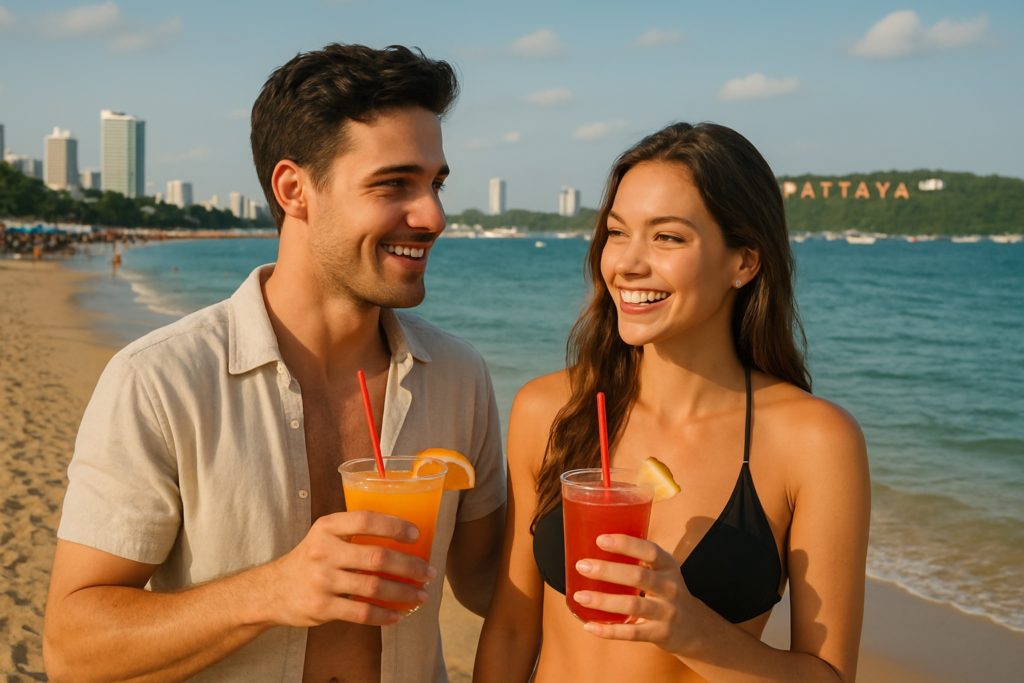BANGKOK — Thailand has introduced its most significant changes to alcohol regulations in decades, easing restrictions that long puzzled both residents and international visitors.
The shift, announced in late 2025, reflects the government’s push to modernize outdated rules, stimulate tourism, and align with global hospitality standards — while maintaining a firm stance on public health and safety.
A Legacy of Restrictions, Rewritten
For years, Thailand’s alcohol laws were a patchwork of rigid sales windows, curfews, and afternoon bans — many originally crafted for a different era. The most distinctive among them, a nationwide ban on alcohol sales between 2 p.m. and 5 p.m., dated back decades and was intended to deter government officials from afternoon drinking.
Deputy Prime Minister Sophon Sarum, speaking after the National Alcohol Policy Committee meeting, acknowledged the outdated rationale:
“This rule was originally introduced to prevent government officials from drinking in the afternoon. That era is over now.”
Under the new policy, the government has enacted two major changes:
1. Longer Drinking Hours for Nightlife Venues
Licensed venues may now serve alcohol until 1 a.m., extending the previous cutoff by one hour. Authorities say the move aligns Thailand with the nightlife norms of top Asian tourist destinations, including Singapore and Hong Kong.
In a notable shift toward personal accountability, customers — not just businesses — can now be fined for drinking after hours. Anyone consuming alcohol past 1 a.m. may face penalties of up to 10,000 baht.
2. Afternoon Alcohol Ban Eased Through Pilot Program
A six-month nationwide pilot allows restaurants to sell alcohol between 2 p.m. and 5 p.m., a time slot off-limits for decades. The Ministry of Public Health says this window will be closely monitored for effects on public health, traffic safety, and social behavior.
Restaurant groups across Thailand have welcomed the change, calling it long overdue and essential for attracting long-stay tourists, particularly Europeans who dine later in the afternoon.
Domestic Reaction: Relief, Caution, and Calls for Broader Reform
Hospitality associations applauded the reforms as “pro-business” and “tourism-aligned.” Many restaurant owners reported that the afternoon ban created confusion among visitors and hindered revenue during peak meal times.
Public health advocates, however, urged vigilance. Experts at Thailand’s Alcohol Control Foundation warned that relaxed rules could increase late-night traffic accidents if enforcement is not strengthened.
The government maintains that the pilot period — and the new personal liability clause — will serve as safeguards while allowing economic benefits to emerge.
International Response: A Move Toward Global Tourism Standards
Travel groups abroad, including regional operators based in Europe, Australia, and Japan, have reacted positively, noting that Thailand’s old alcohol laws were “one of the most common points of confusion” reported by tourists.
Industry analysts say the reforms bring Thailand closer to regional competitors vying for tourism recovery in the post-pandemic landscape. The World Travel & Tourism Council noted that aligning alcohol regulations with international norms could improve visitor satisfaction and extend nighttime economic activity in major cities like Bangkok and Chiang Mai.
What Has Not Changed
Despite the new flexibility, several key rules remain firmly in place:
- Retail sales hours: Alcohol in stores can only be purchased between 11 a.m.–2 p.m. and 5 p.m.–midnight.
- Minimum drinking age: Still 20 years old, and enforcement remains strict.
- Dry zones: Temples, schools, and hospitals continue to prohibit alcohol sales.
- Religious and election-day restrictions: Retail sales remain suspended, though hotels and airports may serve under certain exemptions.
What This Means for Visitors and Expats
Tourists and residents alike can now expect a smoother experience:
- Restaurants may sell alcoholic beverages during late-lunch hours.
- Bars, clubs, and entertainment venues can serve until 1 a.m.
- Individuals must stop drinking at 1 a.m. to avoid fines.
- Hotels and airports may operate under modified regulations, but most venues follow national rules.
Even with modernization, cultural norms still matter. In many parts of Thailand, alcohol consumption remains discouraged in religious or conservative settings.
A Modern Pivot With Careful Monitoring Ahead
Thailand’s updated alcohol laws represent a carefully calibrated attempt to boost economic growth and enhance visitor experience while managing public health risks. The next six months — especially the results of the afternoon sales pilot — will determine whether the reforms become permanent and whether further adjustments lie ahead.
For now, the country is signalling a clear message: Thailand is adapting to a changing tourism landscape, balancing tradition with a more modern hospitality environment. (zai)


